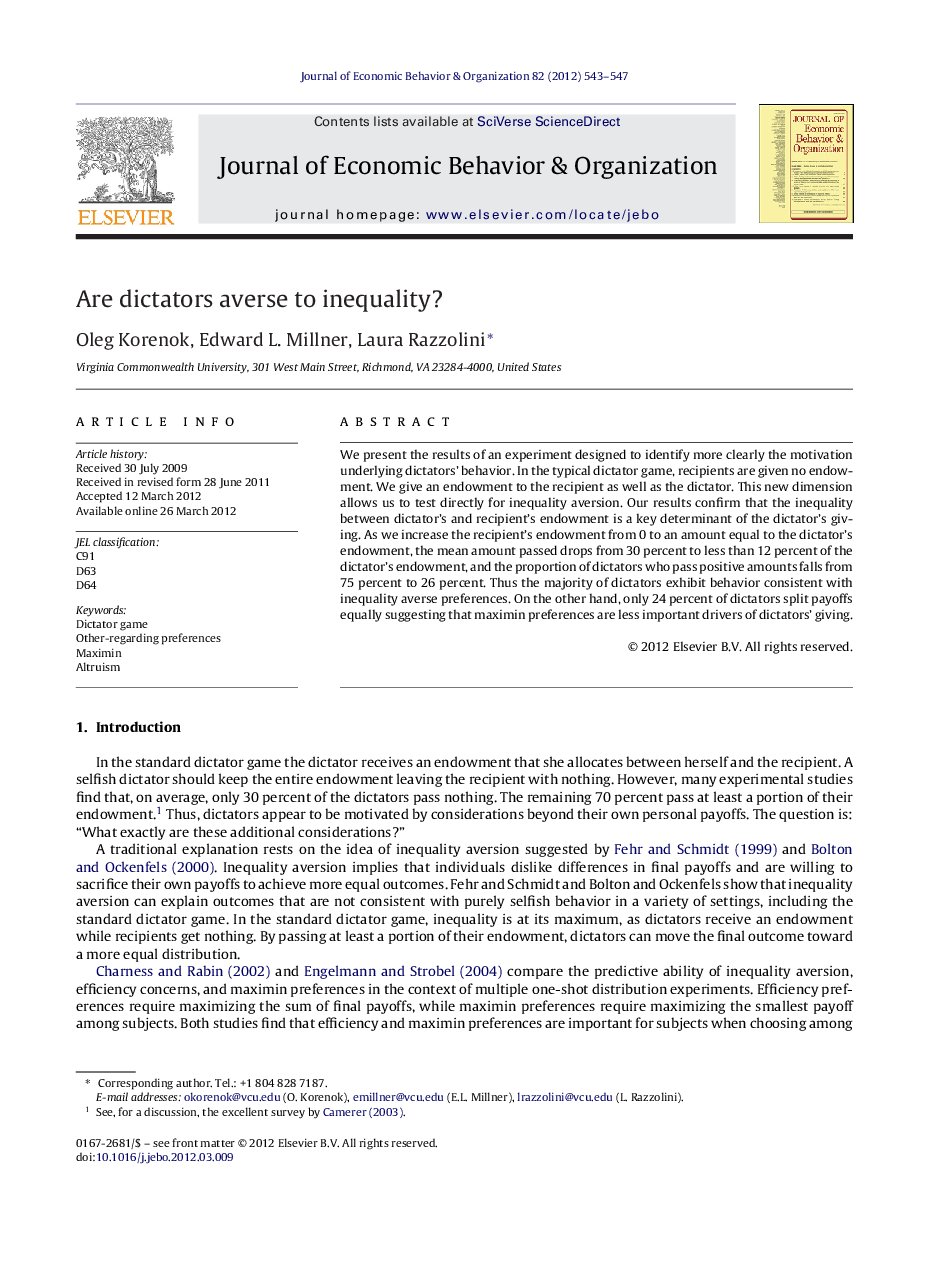| Article ID | Journal | Published Year | Pages | File Type |
|---|---|---|---|---|
| 883789 | Journal of Economic Behavior & Organization | 2012 | 5 Pages |
We present the results of an experiment designed to identify more clearly the motivation underlying dictators’ behavior. In the typical dictator game, recipients are given no endowment. We give an endowment to the recipient as well as the dictator. This new dimension allows us to test directly for inequality aversion. Our results confirm that the inequality between dictator's and recipient's endowment is a key determinant of the dictator's giving. As we increase the recipient's endowment from 0 to an amount equal to the dictator's endowment, the mean amount passed drops from 30 percent to less than 12 percent of the dictator's endowment, and the proportion of dictators who pass positive amounts falls from 75 percent to 26 percent. Thus the majority of dictators exhibit behavior consistent with inequality averse preferences. On the other hand, only 24 percent of dictators split payoffs equally suggesting that maximin preferences are less important drivers of dictators’ giving.
► Inequality between dictator's and recipient's endowments affects dictator's giving. ► Increases in recipient's endowment cause dictator's pass to drop. ► Increases in recipient's endowment cause fewer dictators to pass positive amounts. ► Majority of dictators exhibits inequality averse preferences. ► Maximin preferences appear less important drivers of dictators’ giving.
